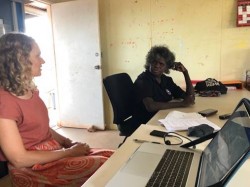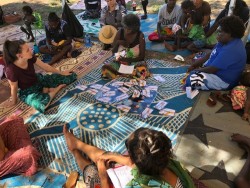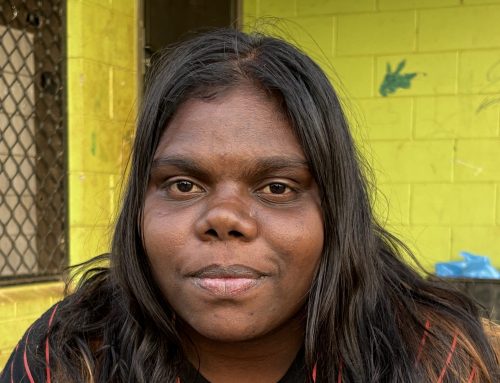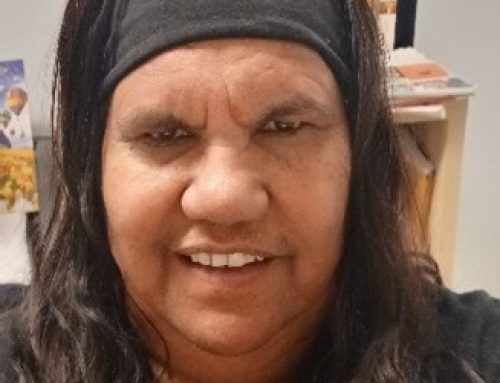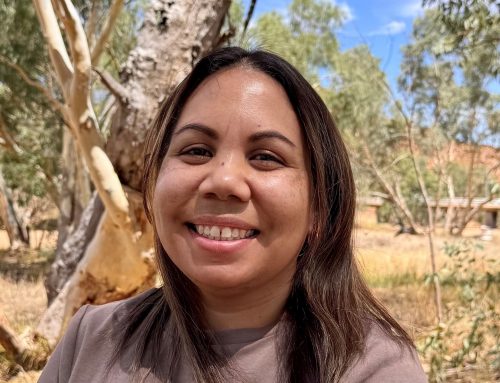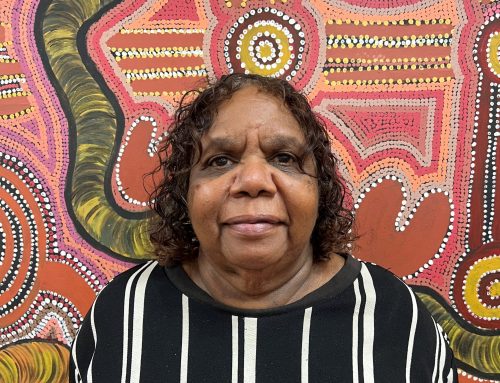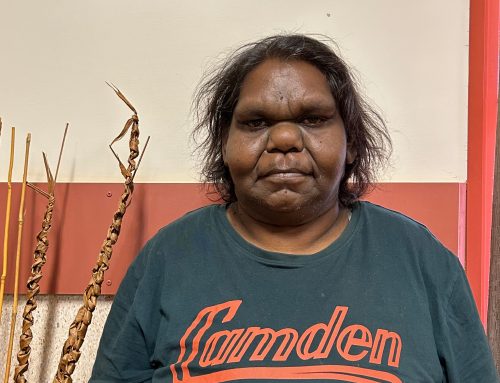Galiwin’ku, NT
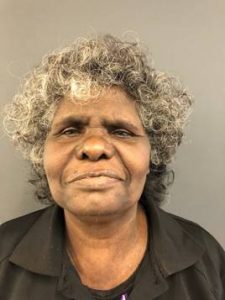
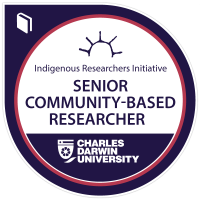
My name is Joan Malku Dhamarrandji.
I was born in Galiwin’ku. I grew up when the mission was located here at Galiwink’ku for all the surrounding clan groups to come and live in this community to access better services for their lifestyle. I was taught by missionarys to read and write in English and my own language, Djambarrpuyngu, which is commonly spoken by two moieties situated in Arnhem Land.
First I learnt the cultural knowledge handed down by my father and my mother, then gradually I got to know the other clan groups. I finished my schooling at year 10 in Darwin high.
I have been gradually getting my understanding through my relatives especially my brother and his wife. I see that it is very important to uphold our Christian faith, as well as our identity as Yolŋu, and to pass on our knowledge to our children about how to adapt to the western world.
Work experience:
I first started training to become a health worker a long time ago at the old clinic. Then I worked as a child care worker. I also did training at the school to become an assistant teacher and I worked as a tutor. I then did a lot of translation and recording work with the Bible Translation Centre. I still do this work. I then worked with NAFLS to help out women and men who had been involved in domestic and family violence. Following on from this I began working and being a member of Galiwin’ku Womens space. I am still a member and still work with GWS.
Then I worked with Red Cross helping out children with the breakfast program, feeding the children and engaging in the Women’s program at the women’s centre in 1988. Then I worked at RSAS for about 4 years. I was a supervisor there and engaged in a lot of meetings. I was also involved in the DDA and I am still a part of the Local Authority. During that time I also helped with the Census.
I am also a church elder and this has involved a lot of volunteer work and engaging with the children and programs for things like the thanks giving program every year.
Community leadership roles:
- Galiwin’ku Local Authority Member
- Hope for Health Strategic Management Committeee member
- Community Health Advocate
- Member of the Dalkarra and Djirrikay Authority guiding Emergency Mangement partnerships
- Community leader advising the Talking Namba research project
Research Projects:
I have been involved in all these projects below while working as a researcher at Yalu’ Marŋgithinyaraw, the Yolŋu research organisation in Galiwin’ku Elcho Island.
- CDU Education pathways
Undertaking work to develop a dictionary of terms related to education and workplaces in English and Djambarrpuyngu. I was involved in shaping the investigation and participating in discussions about methodology.
The MESCH project was developing and aiming at how the mother felt, investigating what services were valuable for her. If they knew there was a program that they could go to, they should let the mothers know. We mostly descovered that mothers didn’t know that there were services available to help them with their motherhood. They didn’t know that there were services that can help them professionaly and with their Yolngu cultural knowledge. My role was to be an interpreter, explain to the mother what the research was about, and we heard the thoughts of the mother, feedback about how she felt and we helped to explain to the Balanda researchers what was being said. I was in the middle engaging with the young mothers and the Balanda researchers, making them understand what we were trying to let them know.
- University of Melbourne Antibiotic research project
The Wungan project was telling all the owners about the option for nutering operation for dogs. Explaining about the way that dogs can transfer illness to Yolngu. It is also important to minize the population so that the owner can really look after them. This improves the wellbeing of the dogs and the owners. I was the only resercher working with the external researcher.
- Autism Queensland Goal setting tool
Here I supported other researchers. Learning from and observing. I felt that this was a good project because there was one-on-one learning in this. This project required a lot of patience and understanding, about how to present information to the client who is an a world of their own, and also who might be hesitatnt to respond, or them might require more time and empathy to make them feel comfortable, and being in touch with the people, being face to face and trying to understand those people that we were working with.


